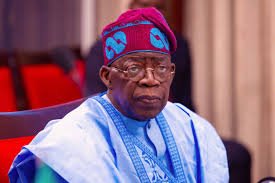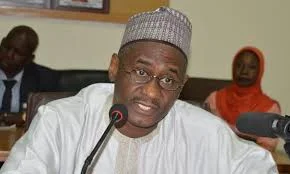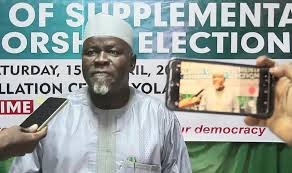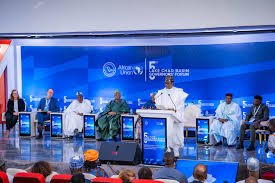President Tinubu promised Nigerians ‘renewed hope,’ but a year later, many citizens are feeling ‘dashed hope.’ Living standards for most people have plummeted. Basic goods are unaffordable, jobs are scarce, and life is a daily struggle for over 160 million people in the active age bracket.
The National Bureau of Statistics, the International Monetary Fund (IMF), and the World Bank all confirm that poverty has increased over the past year. Even the presidency has not denied that Nigerians are poorer under Tinubu’s administration.
The economic performance of the government is unimpressive, despite claims of rising revenues, reduced corruption, and growing investor confidence. Federal economic managers assert that fiscal federalism is healthy, but the reality for local manufacturers is grim.
High production costs, energy expenses, transport issues, and high interest rates are stifling business growth.
Many foreign firms have ceased operations in Nigeria, relocated to Ghana, or returned home due to poor infrastructure, a devalued currency, and high inflation.
Critical sectors like agriculture and food security face severe challenges, including violent displacement of farmers, cattle rustling, high costs of farm inputs, and insufficient financial support for small and medium farms. Attacks on people transporting farm produce and a poor rainy season further exacerbate food insecurity.
ALSO READ: “Renewed Hope Turned to Hopelessness”: NEF Member Criticizes Tinubu’s First Year
The working class remains restless, demanding salary and wage adjustments to cope with inflation. The government, however, plays a cat-and-mouse game with organized labour, dismissing threats of general strikes as “unnecessary intimidation.”
The security situation has not significantly improved since Tinubu took office. While the rhetoric is less brazen, the challenges remain daunting with security profiteers still in business. Tinubu’s administration focuses on the economy and security, but the results have been disappointing.
The IMF’s economic model emphasizes short-term measures like spending cuts and revenue generation, which have failed to improve the situation for the common Nigerian. The social sector, including public schools, universities, hospitals, housing, and transport, is in a deplorable state, with plans for further privatization meeting public resistance.
Amidst these hardships, the cost of governance in Nigeria remains one of the highest in the world.
Privilege, profligacy, and waste characterize the corridors of power, portraying governments at all levels as insensitive and greedy. Politicians are more interested in personal gain than public service. The term ‘public service’ has become an embarrassment, as almost every public good is now pursued for private gain.
The cost of governance is prohibitive across all tiers and arms of government. In the 2024 Appropriations Act, a staggering N370 billion is set aside for legislative expenses, with little scrutiny or cuts to reduce waste. The legislative arm has allocated vast sums for various budget items without serious oversight.
Lavish spending on recreation centres, car parks, and solar power systems highlights the insensitivity of lawmakers to the plight of ordinary citizens. President Tinubu’s transactional disposition towards the legislature suggests a tolerance for backroom deals, adding to the fiscal burden of governance.
The president’s 2024 budget was reportedly passed before it was even presented, reflecting a pre-negotiated and settled approach to federal budgeting. Tinubu’s administration follows an unreformable path, perpetuating a system that enriches a select few at the expense of the masses.
The revenue mobilization strategy favors the wealthy, neglecting the working and toiling masses.
ALSO READ: Gbagyi Youth Send SOS To Tinubu, FCT Minister Over Kidnappings in Kuje
On the foreign policy front, Tinubu’s actions have been questionable. His threat to reverse the military coup in Niger by force has divided West Africa, aligning some states with the West and others with pro-sovereign interests.
This division serves Nigeria’s geo-strategic competitors and undermines the nation’s interests.
Tinubu’s relationship with foreign powers raises concerns about his understanding of Nigeria’s national interest. Prioritizing personal relations over national interests compromises the country’s security, economy, and sovereignty.
Despite these challenges, Tinubu excels in revenue mobilization, using ‘vampire economics’ to extract resources from the poor to benefit the rich. The economic message to the masses appears to be one of continued hardship unless they resort to revolutionary protest.
As Tinubu’s administration enters its second year, the campaign for a second term will likely bring temporary relief in the form of largesse and palliatives. However, this cyclical approach has failed Nigerians for the past 24 years.
The system is broken and unworkable. It is up to the Nigerian people to reset it or remain stuck in perpetual crisis. Hope cannot be renewed by moving backward; it requires forward progress. In twelve months, the Tinubu administration has taken the country backward, leaving the masses to fend for themselves and fight for their survival.
Abubakar Yunusa Ojima-Ojo is a freelance journalist, based in Abuja
























